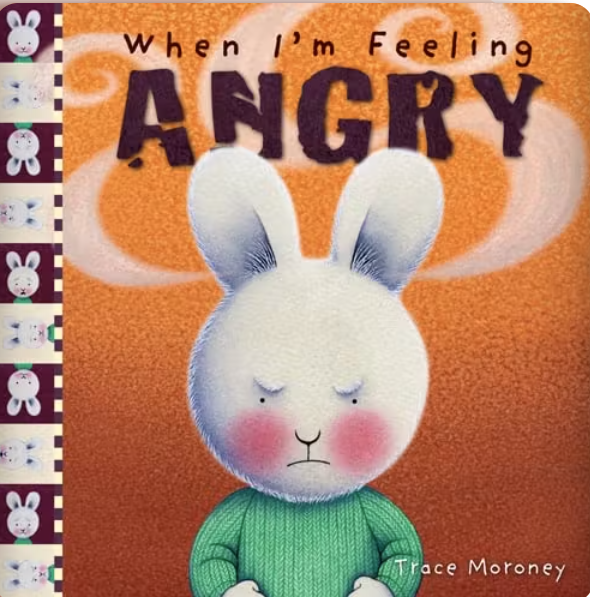Every child has to go through the work of growing up and learning how to process the world around them. As parents, we have an important job of teaching them how to do this. Our kids' brains are flooding their little bodies with big emotions and this can lead to tantrums, meltdowns, and random mood swings. These will continue until they learn how to regulate their emotions.
Even at the age of 7 months, my twins were already experiencing boredom, frustration, love, sadness, joy, and many more emotions. As they get older and learn how to use words, we teach them the right words to assign to their feelings so that they can deal with them properly. Unfortunately, even adults struggle with this and never learn. So what can we do now for our children, and for ourselves?
Name Emotions
One of the first things we can do with our kids is name emotions. You can start out with simple ones like happy and sad. As they get older, you can start naming more complex ones like jealous, nervous, lonely, and guilty. This is an important first step to regulating emotions because how can you address something that has no name?
It is important to note that this should be done while the child is calm. Trying to teach words in the middle of a tantrum is not going to work very well.
Now that you've given names to emotions, you can start giving ways to self-regulate them.
The Feelings Series are beautifully produced picture books that cover different emotional concepts for young children. The Feeling series is especially designed to help children better understand their feelings and how to identify, manage and express those feelings in an appropriate and acceptable way, both to themselves and others. These books provide an invaluable tool to help build confidence, self-esteem and contribute to a healthy emotional foundation upon which children can thrive.
Lead by Example
One of the best ways to do this is to lead by example! Our kids are always watching us and they learn so much just with their eyes. The next time you feel strong emotions, like when you drop your plate on the floor, or your child cuts all their doll's hair off, illustrate to your child how you will regulate your own emotions.
Security/Comfort item
Before our children even turn 1, they are learning how to make themselves feel better. It can be a pacifier, a blanket, their fingers, or a favorite toy. A new and popular trend is using weighted blankets or stuffed animals to help with this. Using weighted items can help those young and old with autism, and anxiety, and those who have trouble sleeping.
Coloring
By now I think everyone has seen the variety of mindfulness coloring books for adults out there. Coloring and art have been shown to help with emotional regulation from young to old. Something about using our hands and focusing on the lines helps us calm down and think more clearly.
As an
“Coloring is a healthy way to relieve stress. It calms the brain and helps your body relax. This can improve sleep and fatigue while decreasing body aches, heart rate, respiration, and feelings of depression and anxiety.”
Mayo Clinic
There are many different coloring resources to offer however this book ABCs of Mindfulness was featured in Oprah's Favorite Things 2021 list. It goes through the ABCs, giving poems about mindfulness, while also providing a coloring page for each letter. You can get this book through Amazon.
Physical Activity
From child to adult, doing some sort of physical activity has been shown to help with stress. As a homeschooling mom, I know that when my kids start getting antsy at the table or really frustrated with their work, taking a break and doing some exercise helps us get over the hill. Often times we go to Cosmic Yoga on youtube but if you want less screen time you can buy some kids yoga cards or book.
There are many other physical exercise options that can fit your family's style. You can go on a walk, go to a trampoline park, go to the local playground, go swimming, go to the beach, or even just go to your back yard and play a game.
Breathing Exercises
Breathing exercises is one of the first ways I learned how to get through my panic attacks as a child. MY father would breathe with me nice and slow with a hand on my chest so I could pay attention to my breathing. If you or your child have anxiety or panic attacks, learning how to breathe through them can be so beneficial! When teaching your kids, having an object to demonstrate how the breathing should be can help. A Hoperman Sphere or expandable ball can illustrate this with kids while also being fun to use. You can find one on Amazon.
Follow Through
You already named what happened, next is ask why it happened, and then what you can do the next time you feel that way. This is where resilience and mental training really helps.
Asking the whys and hows is just as important as calming ourselves and is important in learning how to regulate our emotions faster and more efficiently. It also helps to discover the root of the problem so that we aren't just treating the symptoms.
Make sure to take the time to address their perception of things. Give them other ways to view the situation and share your perspective as well. This will allow them to see the whole story and see how their actions affect others. Not taking the time to talk to your kids about their perceptions of things can lead to lifelong resentment.
Do you have a memory from your childhood that left a significant impression? Have you ever talked to your parents about it and they had a whole different understanding of the event? It's not always because they are old and their memory is fading. These moments can be caused because there were different perspectives on the situation and many of these situations can be avoided if we communicated more.
What the Bible says
There are many more ways to teach our children how to regulate their emotions but it is very important we do something to help our children. This isn't just something that makes our lives as parents easier, but it is something that is important to God. Look at what the Bible says.
A man without self-control is like a city broken into and left without walls.
Proverbs 25:28
Whoever is slow to anger is better than the mighty, and he who rules his spirit than he who takes a city.
Proverbs 16:32
So don’t worry about tomorrow, for tomorrow will bring its own worries. Today’s trouble is enough for today.
Matthew 6:34
It is never too late to start teaching and practicing how to regulate our emotions. Begin today with patience and understanding.
I would love to include you in my prayers as we both pray over our lives and children. Feel free to email me and let me know how your journey is going.










